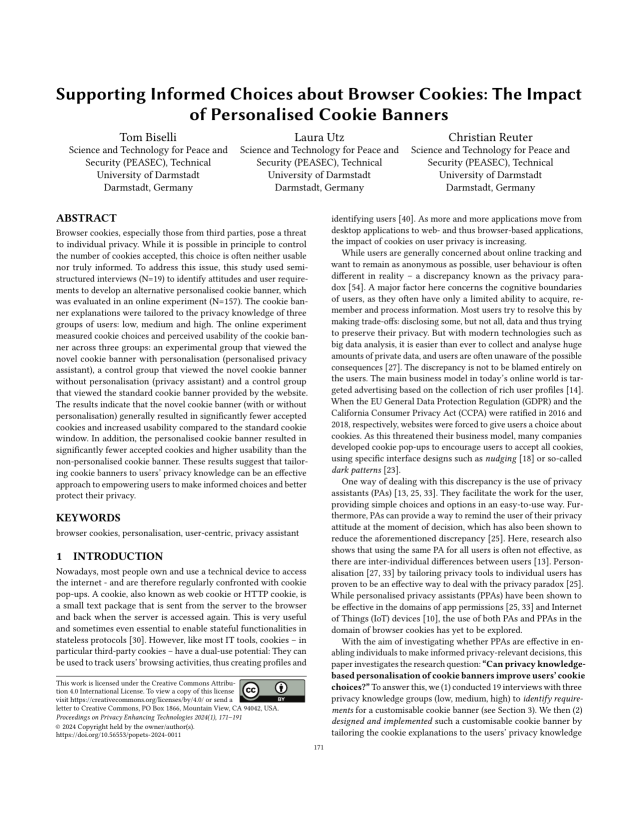Supporting Informed Choices about Browser Cookies: The Impact of Personalised Cookie Banners
Authors: Tom Biselli (Science and Technology for Peace and Security (PEASEC), Technical University of Darmstadt), Laura Utz (Science and Technology for Peace and Security (PEASEC), Technical University of Darmstadt), Christian Reuter (Science and Technology for Peace and Security (PEASEC), Technical University of Darmstadt)
Volume: 2024
Issue: 1
Pages: 171–191
DOI: https://doi.org/10.56553/popets-2024-0011
Abstract: Browser cookies, especially those from third parties, pose a threat to individual privacy. While it is possible in principle to control the number of cookies accepted, this choice is often neither usable nor truly informed. To address this issue, this study used semi-structured interviews (N=19) to identify attitudes and user requirements to develop an alternative personalised cookie banner, which was evaluated in an online experiment (N=157). The cookie banner explanations were tailored to the privacy knowledge of three groups of users: low, medium and high. The online experiment measured cookie choices and perceived usability of the cookie banner across three groups: an experimental group that viewed the novel cookie banner with personalisation (personalised privacy assistant), a control group that viewed the novel cookie banner without personalisation (privacy assistant) and a control group that viewed the standard cookie banner provided by the website. The results indicate that the novel cookie banner (with or without personalisation) generally resulted in significantly fewer accepted cookies and increased usability compared to the standard cookie window. In addition, the personalised cookie banner resulted in significantly fewer accepted cookies and higher usability than the non-personalised cookie banner. These results suggest that tailoring cookie banners to users' privacy knowledge can be an effective approach to empowering users to make informed choices and better protect their privacy.
Keywords: browser cookies, personalisation, user-centric, privacy assistant
Copyright in PoPETs articles are held by their authors. This article is published under a Creative Commons Attribution 4.0 license.

